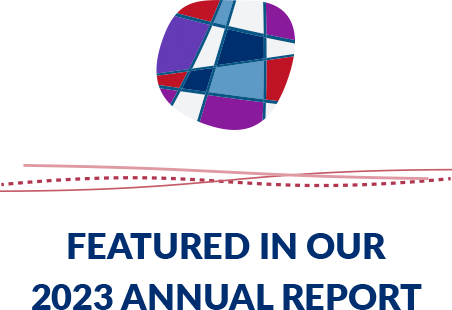Woven Together: Immigrant and refugee communities building connections
UACC Summer Camp.
Twin Cities organizations are supporting families taking their first steps into American life after displacement and conflict. Afghan Cultural Society and the Ukrainian American Community Center of Minnesota empower immigrants and refugees with employment, housing, and wellness resources, providing lasting support that creates a stronger foundation for new Minnesotans.
Meeting immediate needs
Afghan Cultural Society (ACS) and the Ukrainian American Community Center of MN (UACC) are crucial elements in a broad network of support – staff, volunteers, donors, and philanthropy – that couple new Minnesotans with the resources they need. These organizations offer support that expands and adjusts based on families’ needs, starting with peer-based resettlement assistance that includes housing, transportation, employment, and healthcare, along with counseling and community connections.
Refugees who have arrived in Minnesota in recent years also underscore the importance of mental and social wellbeing. Fasiha, a 2022 Afghan arrival shared the impact ACS has had on her quality of life, “Here, people work away from home a lot, and they don’t spend a lot of time in the house. They don’t really get in touch easily. But since I have been introduced to [ACS], I feel much better, and I was able to find friends and meet so many people.”
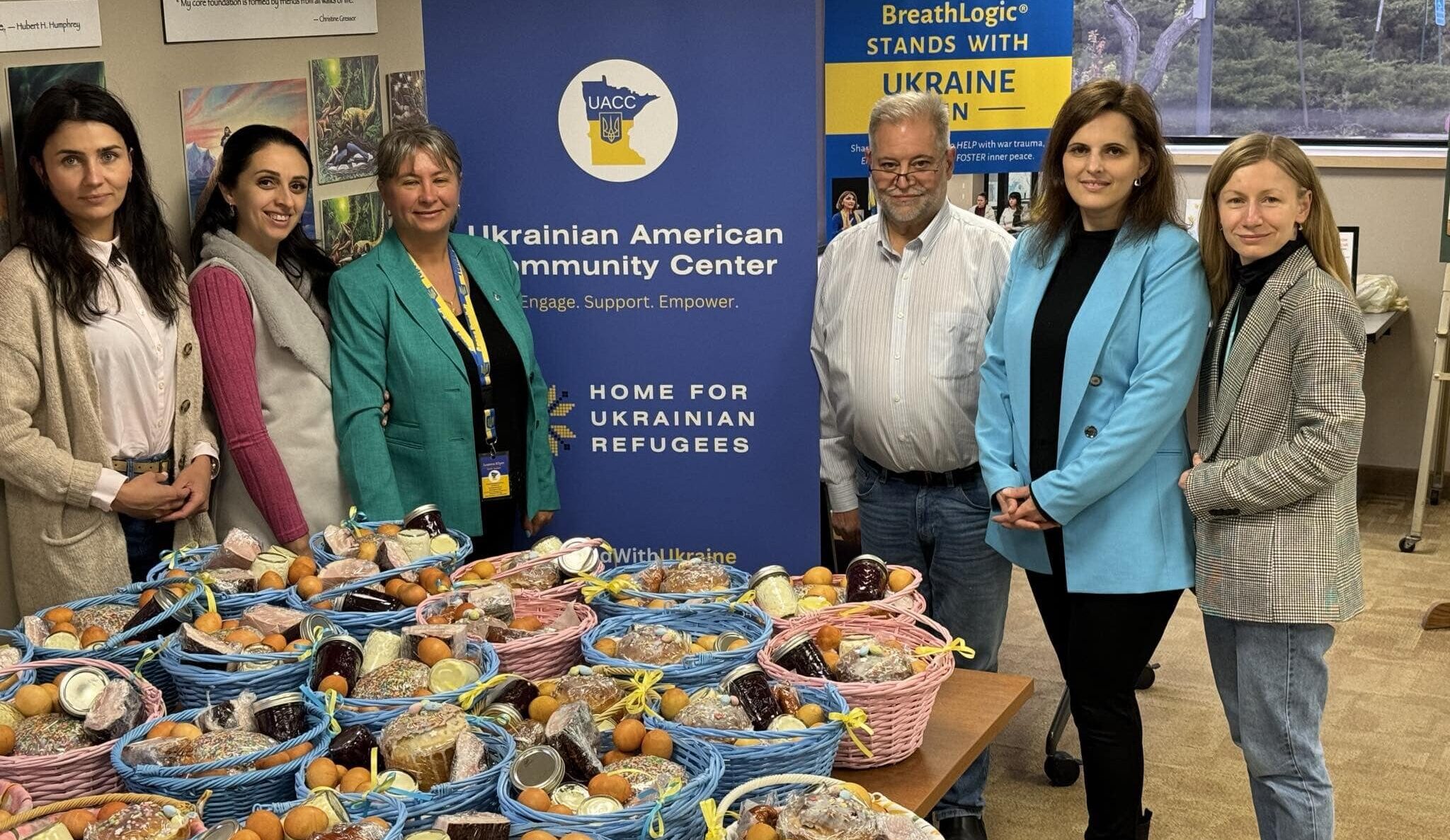
UACC Refugee Services Support Team assembled baskets for newly-arrived families as part of the Community Center’s Ukrainian Easter celebration.
UACC Community Outreach Manager Iryna Petrus, who left Ukraine shortly after Russia’s 2022 attack, describes the Center’s goal: to create a space where people immediately feel comfortable, feel accepted, and treated as they would be at home “a space where people can come and be themselves.” In response to the surge in refugees, familiar tea and snacks are a gateway to a list of language-accessible workshops, summer camps for kids, and much more.
Finding spaces that feel familiar is central at ACS as well, as member Rezwana Tavasoli reflected, “I am happy meeting people talking in my mother tongue. I am happy when I am with family and friends. To other Afghans: You are not alone. We are all here, and if you want to meet and talk to Afghans, you can step into the Afghan Cultural Society, and the folks here will help you in all ways they can.”
“When people share their personal stories, they tell me it’s easy for you to understand because you are a refugee yourself, you heard those bombs.” – Iryna Petrus
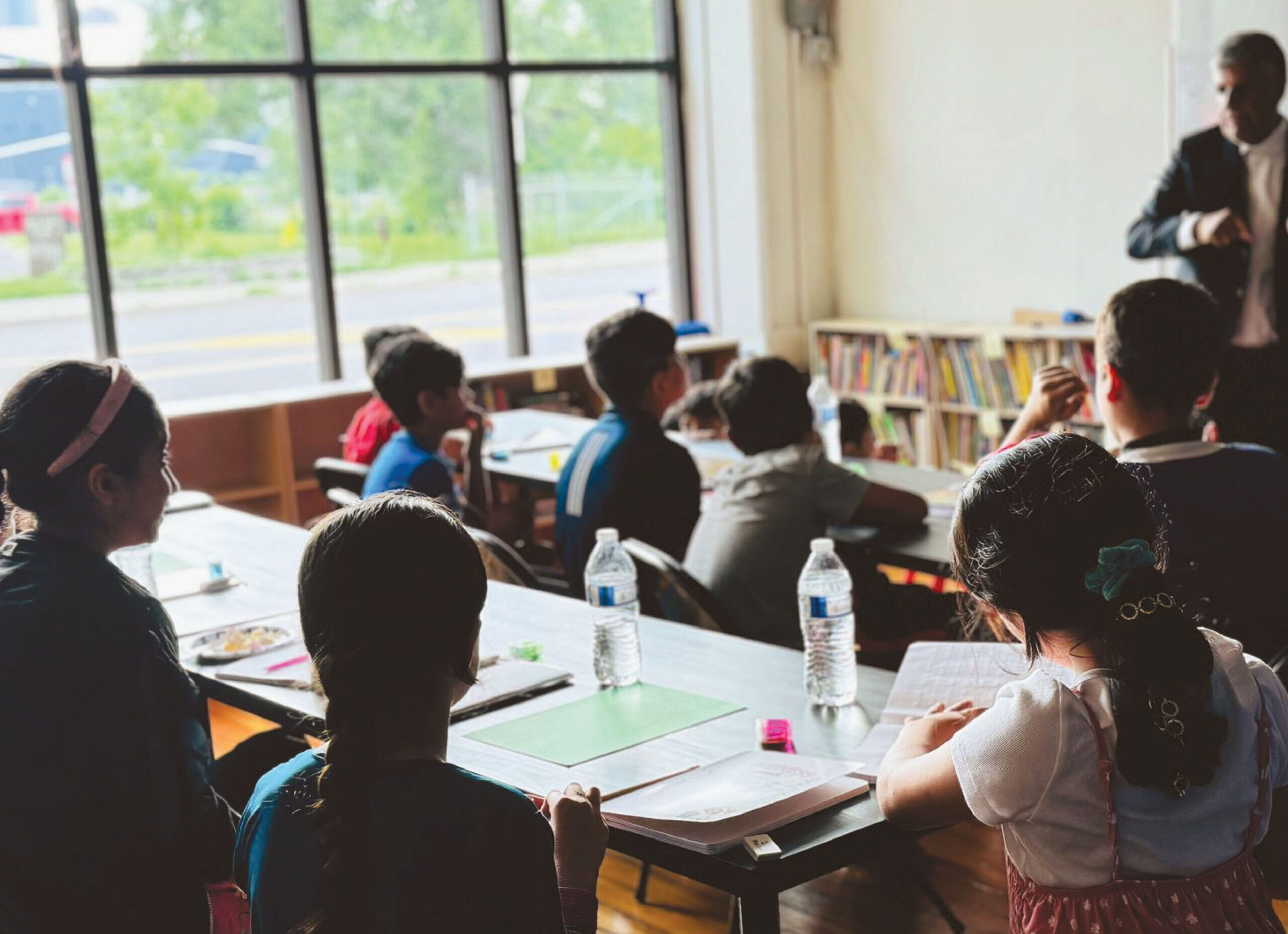
Children participate in Farsi lessons through ACS. 2024
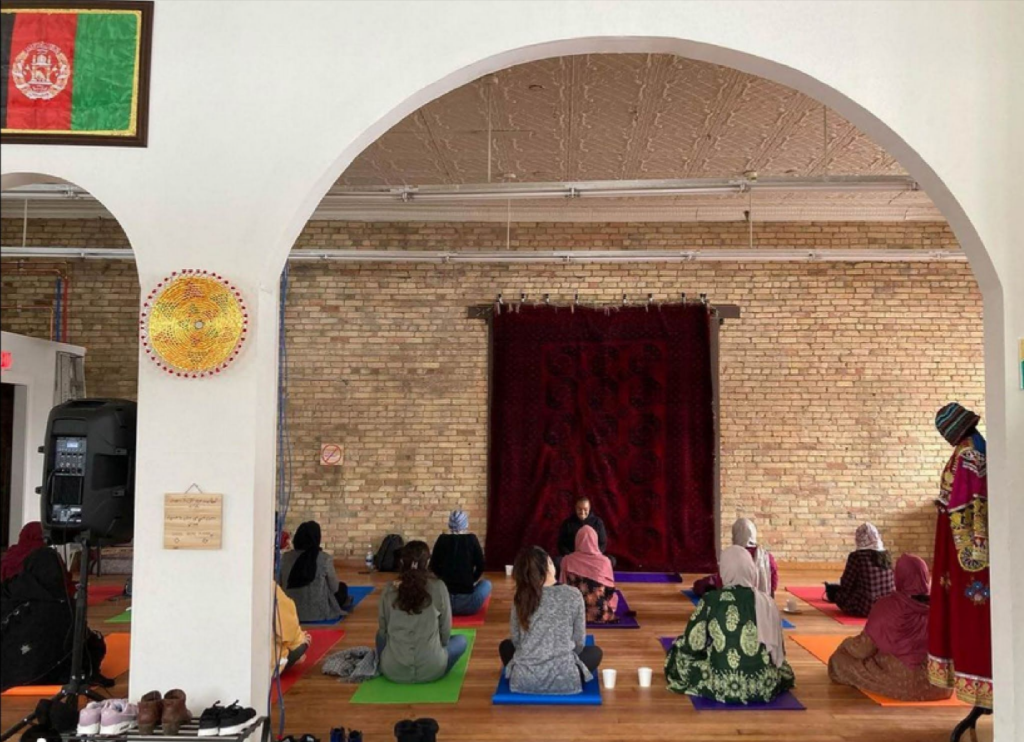
Women’s Circle members participate in a group yoga class at ACS. 2022
Navigating new systems
While some immigrants have a chance to plan their transition to another country, refugees often flee war, conflicts, or other life-threatening crises. Leaders at ACS and UACC draw on and use their shared experiences in their work, providing invaluable connections where it counts. An ACS Family Assisters team lead since 2023, Sarah Quraishi remarked, “As a new refugee myself I have been learning about systems in the U.S. alongside my peers and I feel so much more knowledgeable and able to help than when I started.”
The organizations advocate for and support families and individuals adjusting to life in the U.S. Accessing services can be confusing and expensive, and language differences are just one aspect to navigating the healthcare landscape. New community members are often eager to meet long-overdue healthcare needs and find a path to citizenship and permanent status. Legal counsel, medical interpretation, educational opportunities, and coaching resources are all rooted in culturally affirming approaches.
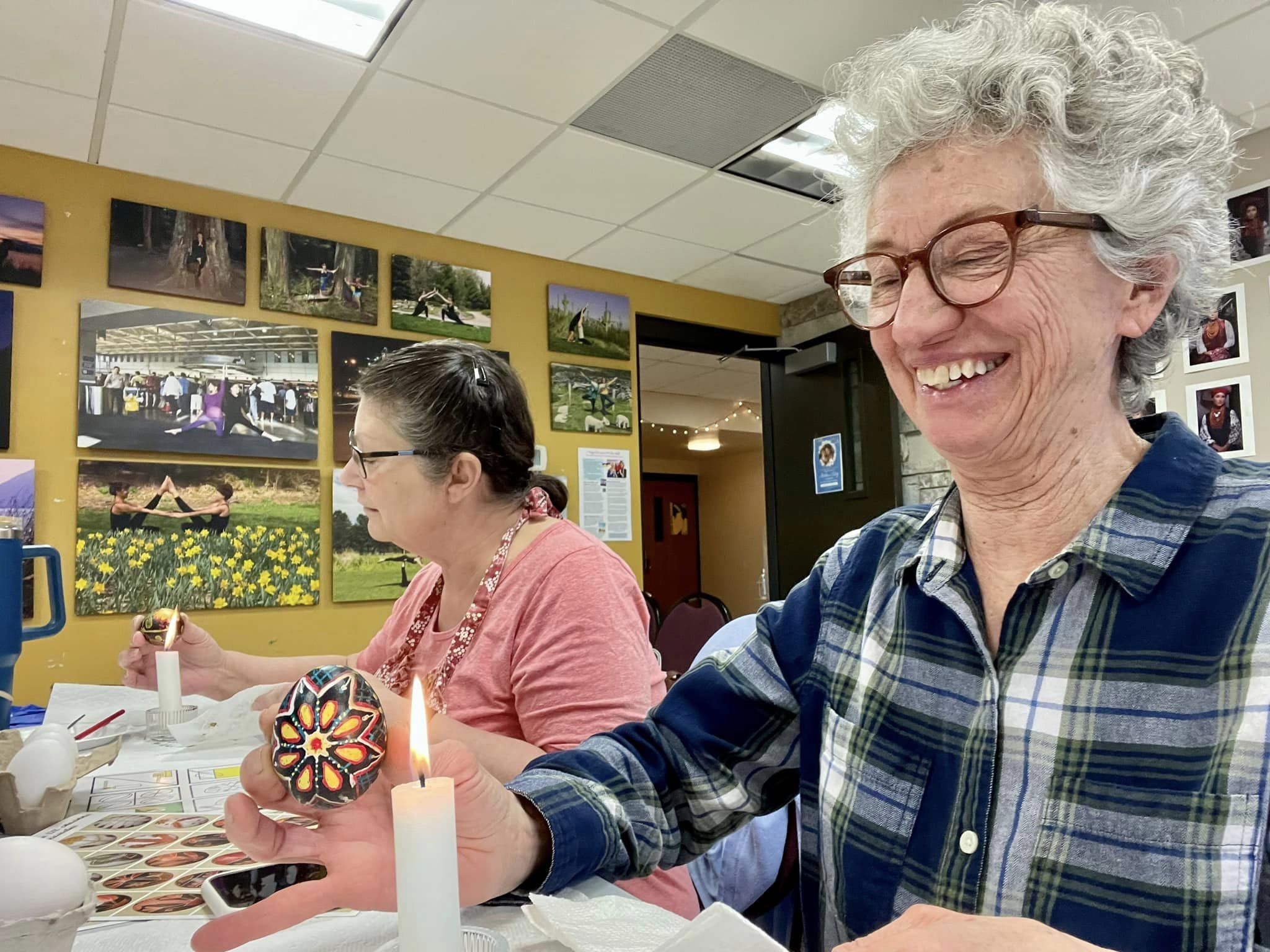
UACC hosted several classes for community members to enjoy the Ukrainian holiday tradition of painting Easter eggs.
Meaningful, personal connections
Centered in Minneapolis’ Cedar-Riverside, ACS’s community-focused touch has provided stress relief, and a space fueled by love and respect. “We were so happy because we met a lot of Afghans and talked with each other and celebrated Eid together. We really appreciate their hard work and support in all aspects” said participant Wagma Amiri, whose family has also participated in ACS’s driving knowledge, sewing classes, and youth-centered programs.
Staff and volunteers at UACC also see the importance of connecting on a personal, and at times, very emotional level. “When people open up about their stories, they tell me it’s easy for you to understand because you are a refugee yourself, you heard those bombs.” Petrus shared.
As UACC’s Director of Refugee Services, Walter Anastazievsky remarked, “We are home base. We are the place where anyone coming from Ukraine, who needs help, who needs connection, who needs a way of getting oriented in this new society, can come and get that.” Ukrainian-Americans have a long history in Minneapolis’ Northeast Marcy-Holmes neighborhood. And as new refugees have arrived, the Center continues to evolve with board representation and expanded diversity that reflects the community.
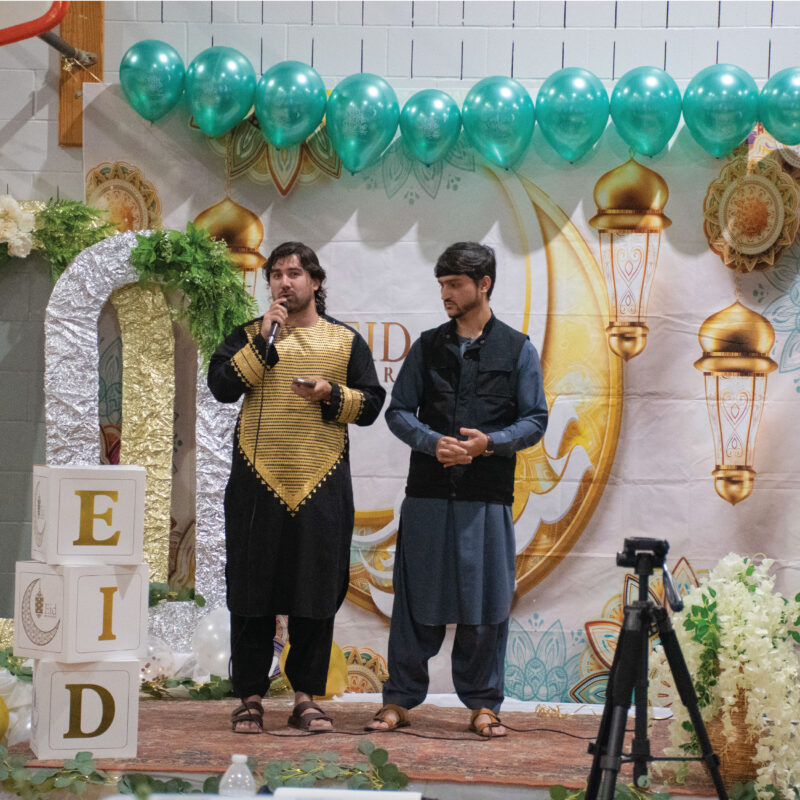
ACS Team Members Wahidullah and Fahim act as hosts at ACS’ annual Eid Qurban celebration at the Brian Coyle Center. 2024
To other Afghans: You are not alone. We are all here, and if you want to meet and talk to Afghans, you can step into the Afghan Cultural society and the folks here will help you in all ways they can.
– Rezwana Tavasoli
In 2023, Margaret A. Cargill Philanthropies (MACP) provided support for these organizations through its community responsiveness funding. MACP’s Local Initiatives program prioritizes communities and issues within Minnesota that have been historically overlooked or underserved, which directly reflects guidance from its donor, Margaret Cargill. ACS and UACC represented two in a group of ten, $50,000 gifts to Minnesota-based nonprofits who work with immigrant and refugee communities. Funding was made through The Margaret A. Cargill Foundation Fund at the Saint Paul & Minnesota Foundation.
The work of UACC, ACS, and their partners demonstrates the power of community-based programs in creating meaningful connections and lasting impacts. By weaving together diverse resources and support systems, they are helping build a stronger foundation for immigrant and refugee communities in Minnesota—one that allows them not only to survive but to flourish.
